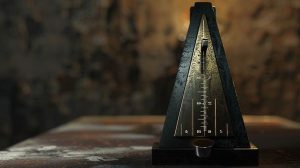
The Benefits of the Ear to Instrument Connection
I recently watched a video performance by the amazing classical pianist Yuja Chang. I’ve seen her memorizing motion and heard her virtuosic playing before, but something hit me after seeing
Categories:
Categories:
Think about playing using your right (creative) brain. It’s the part of your brain that, if connected well to your instrument, allows for the most authentic improvisation. You hear a note, you’re better able to play that note. Your instrument becomes the amplifier of your musical “voice”.
But there’s another aspect to improvisation that benefits from that right brain connection to your instrument. More than just finding notes.
That other aspect is your ability to play your unique style fluently with all the nuance and expression that is your unique musical personality.
I was talking recently to a friend who plays piano. He’s a very good jazz player and when pressed for his biggest struggle he feels as a jazz pianist, he said, to play with more musical nuance. He feels that the musical expressiveness he hears in his head isn’t translating fluidly to the tips of his fingers. He hears himself as too mechanical. Less fluid, perhaps.
The fact that he hears that gap is proof of a certain amount of friction between his brain and hands. We all have a certain amount of friction unless we’re Miles or Kieth Jarrett or Bird or some other jazz master.
But here’s what I think is the interesting question that he and I discussed. Is what he perceives as a lack of expressiveness due strictly to a lack of piano technique?
I could make the argument that if he practiced the classical exercise and performance literature for piano and built his chops to master, for instance, Rachmaninov’s Second Piano Concerto, his technical abilities would make expressiveness easier. He would command more depth as he hit the keys. To put it in digital terms, he would have finer resolution to his key striking. Think of Keith Jarrett massaging the piano as his “sings” his way through a ballad.
But is greater technique the only answer?
If what he hears in his mind is exactly that Jarrett-like wide range of liquid dynamics and rhythm, then greater technical skill is needed. He’ll have to build the technical prowess to command that musical engagement.
Let’s look at it another way because transforming oneself is not easy, especially as one gets older and has less time to devote toward significantly elevating one’s instrumental technical prowess.
But is technical transformation even necessary to play more musically? I believe that at a certain level of technical ability, we possess the means to express ourselves closer to what we hear in our musical mind. Getting in the way of that deeper expressiveness is that gap between musical mind and body.
As a trombone player, I don’t have the technical abilities of Marshall Gilkes or Bob McChesney or certainly Joe Alessi, and I never will. I think what I would call my style comes from hearing my musical personality clearly enough to project it from my alto trombone. As I get better, my musical personality is more and more accurately reflected by the horn. That’s not to say it’s good or bad, just that it is being reproduced.
It comes down again to the right brain/instrument connection, but this time not simply for finding the right notes. Instead, that connection allows for hearing with clarity the subtleties of your musical personality, and then amplifying it through your particular instrument.
I hear this when I work with a player who at first improvises over a tune in a stiff and mechanical way. But as we work on exercises connecting right brain and instrument, their playing becomes much more musical. Part of that work involves singing since singing is the most direct reflection of the style you hear for yourself.
Singing works because it allows you to hear what is inside your head clearer than just thinking it. It similar to having an understanding of a concept in your head. When you are forced to write about it or give a talk about it, you start to realize the holes in your knowledge. The more you talk about it and write about it, (or teach it) the concepts become clearer in your mind. There was a gap originally in your understanding of the topic on which you weren’t clear enough to see the holes.
I think the same can be said of a lack of clarity in one’s musical personality, similar to a lack of clarity of the notes to be played. Singing those notes or musical nuances brings about clarity that becomes more instinctively played on your instrument.
Try this: play a relatively short somewhat technically simple phrase on your instrument. Record playing it. Listen back and identify both what is good about it and what you want to be better.
Then hear an idealized version of that in your head and then sing it. You’re probably not a great singer so your vocal rendition may not be perfect, but it is allowing you to manifest the phrase closer to what you hear. Sing it a few times, then record playing the phrase on your instrument. How is that last recording different from the first?
Try this exercise with the head of a tune. Sing it in a way that contains some of the nuance or expressiveness that’s not yet coming through your instrument. Play the melody and listen back to the recording. Do you hear a difference?
I think at a certain level of technical proficiency, we all have a greater range of expressiveness and style unique to us than we know. Try letting your singing create greater clarity of your musical personality. It might be a quicker easier way to musical satisfaction than dedicating the next several years to five or more hours of daily practice toward technical perfection.

Trombonist, author, marketer, & tech guy
Share this post…

I recently watched a video performance by the amazing classical pianist Yuja Chang. I’ve seen her memorizing motion and heard her virtuosic playing before, but something hit me after seeing

I have created a AI chatbot called Jazz Master Chat that draws from 75 hours of interviews from my Jazz Master Summit event a couple of years ago. I interviewed

What is jazz improvisation? Let’s first define what I mean by jazz improvisation. Jazz improvisation is a spontaneous conversation, but instead of words, we use notes. Look at two possible

My recently turned 18 year old son is a passionate photographer He 8217 s got himself a little business

A couple weeks ago I sent Richie Beirach a YouTube clip from the movie Whiplash as a bit of

I originally meant to write this as a reply to a comment Richie Beirach wrote on my blog But

Tools for helping musicians at all levels learn about jazz and play to their full capability.
Web design and marketing by:
Michael Lake @JazzDigitalMarketing.com
This is just a fake book example for the type of website I can build for you. Just trying to use a little humor here!